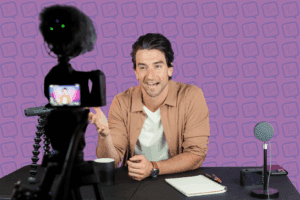“De-influencing” highlights a critical rule for influencers

As an influencer, the things you say hold weight. As the title suggests, your job is to influence audiences. No matter what you’re talking about, your audience will feel compelled to consider your insight into your specific niche, and many people take your word for it with little hesitation. That is the power of an influencer. But what happens if an influencer misleads their audience?
Lately, there has been drama surrounding the beauty community about honesty. At times, creators will take brand deals without trying the product first or standing behind the product. This results in people trying the product they’ve been influenced to get, only to be upset when expectations fall short.
Trying products and services before you mention them to your following is important, no matter your niche. You can find more about the importance of testing products here.
When an influencer backs a product or service that doesn’t hold up, it can make an audience feel deceived.
Enter: “de-influencing.”
“De-influencing” can be defined by In The Know as “ a way to slow down the nonstop trend cycle nature of TikTok and encourage shoppers to be more sustainable and thoughtful when it comes to purchases.” In other words, “de-influencing” works as a way for people online to offer their genuine opinion about trendy products.
This pendulum swing makes perfect sense. When people call influencers out for just trying to make some quick cash, it makes sense that other creators would capitalize on “de-influencing” or show viewers what they think of some products floating around online.
When we look at it frankly, “de-influencing” is essentially the same as influencing. Creators aren’t getting sponsored to tell their audience, “I don’t love this product. Here’s why the hype is not real,” but they’re still getting the same engagement, possibly even more.
Audiences love when they feel influencers are honest and authentic. What is more real than going to your following and going against what is trendy to like? It makes perfect sense why people would like the “de-influencing” trend: Authenticity is paramount.
Some worry that this wave of “de-influencing” results from people not finding influencers authentic or trustworthy. In turn, some have concerns about the fate of influencing.
This “de-influencing” trend is likely not detrimental to influencers. This phase of the internet reminds us of a fundamental rule about being an influencer.
Be authentic.
Followers will know if you don’t back a product or didn’t even try it. Before accepting any partnership, ensure you’ve tried the products and services and that you like them. Viewers won’t question your honesty if you only partner with brands you know, use, like, and trust.
This trend isn’t the end of influencers, but it teaches us a dramatic lesson. To be a successful creator and maintain your audience, you must remain authentic. From trying products to sharing your life online, being real will prove that you are a trusted creator. If you lose your authenticity, you might lose your credibility with your audience in the fallout.





